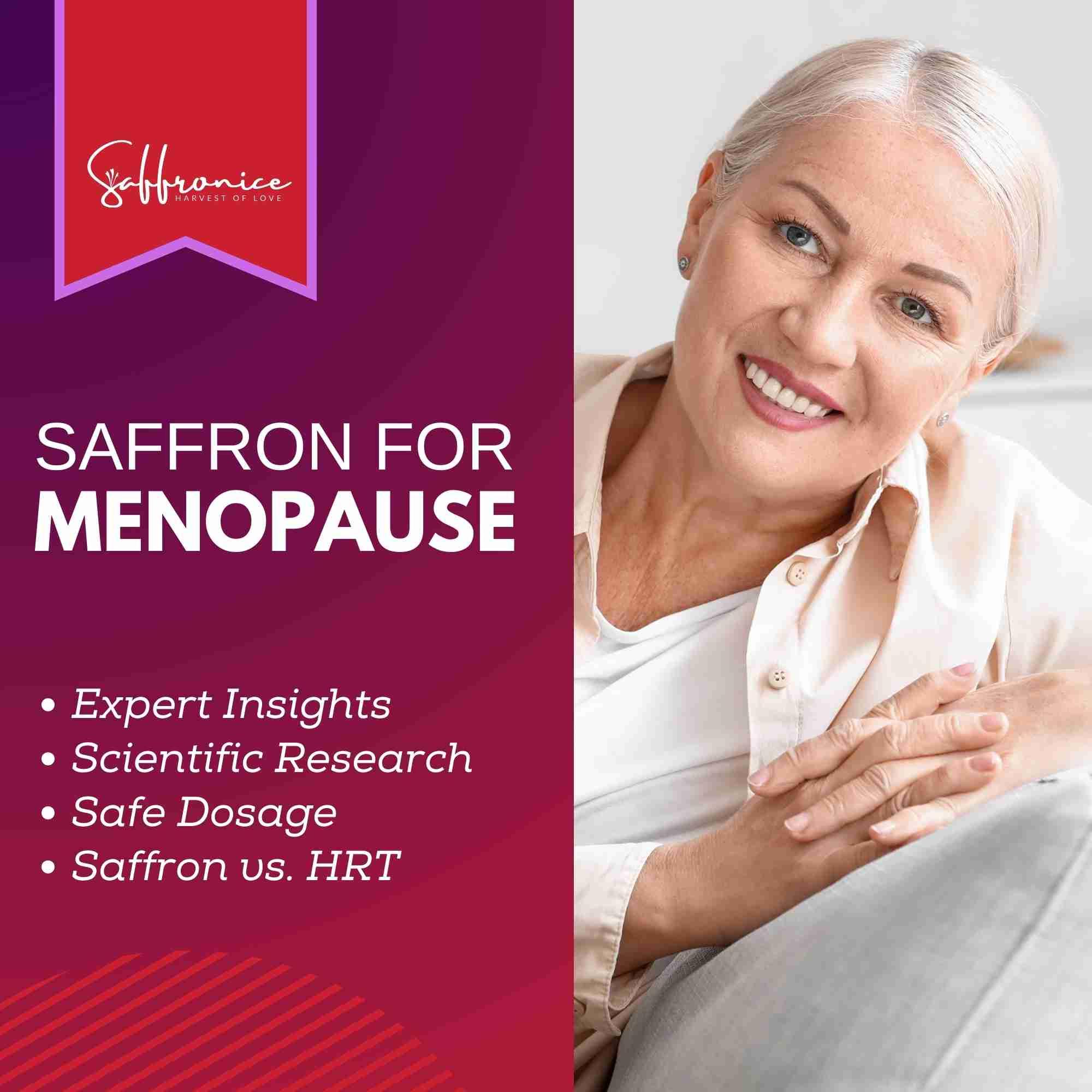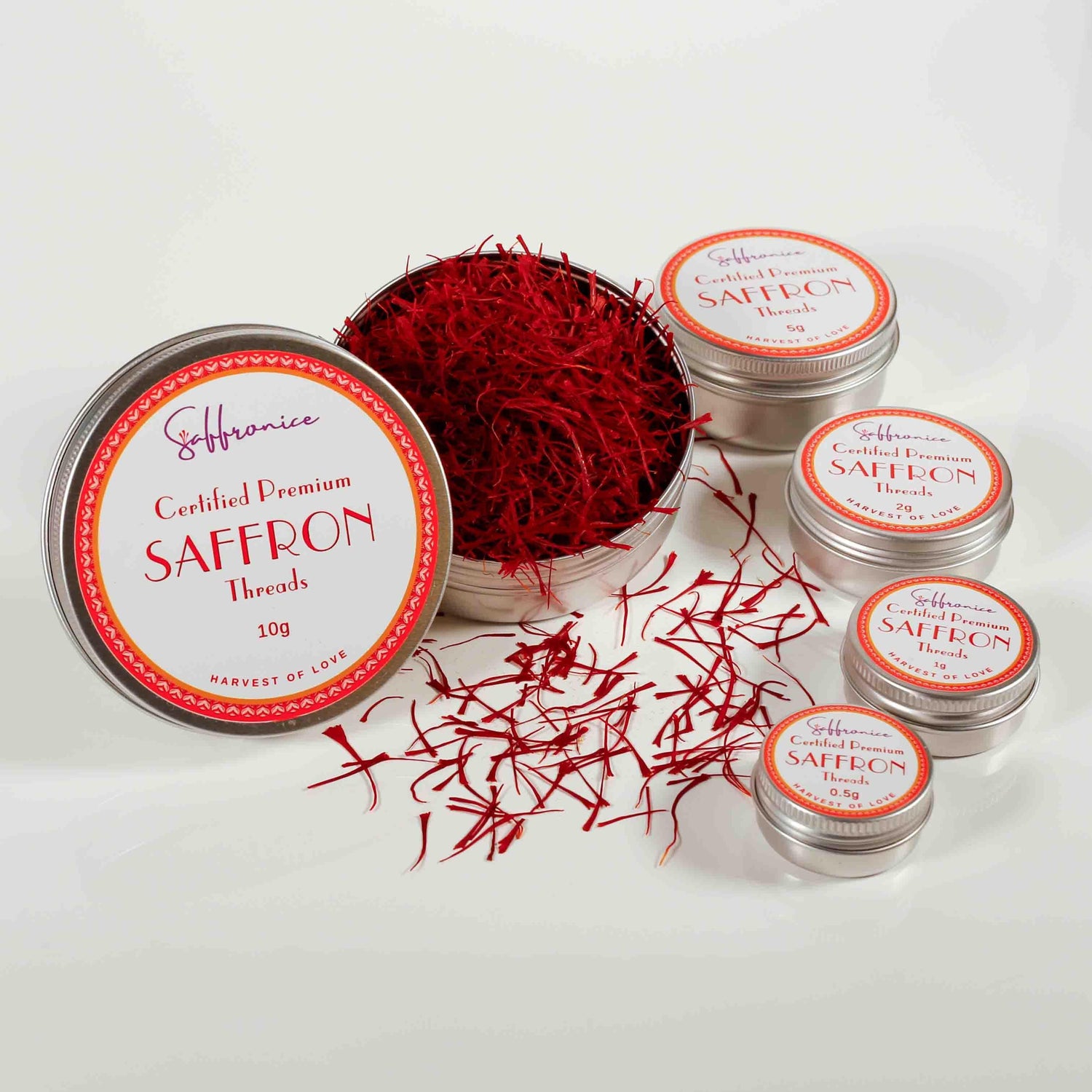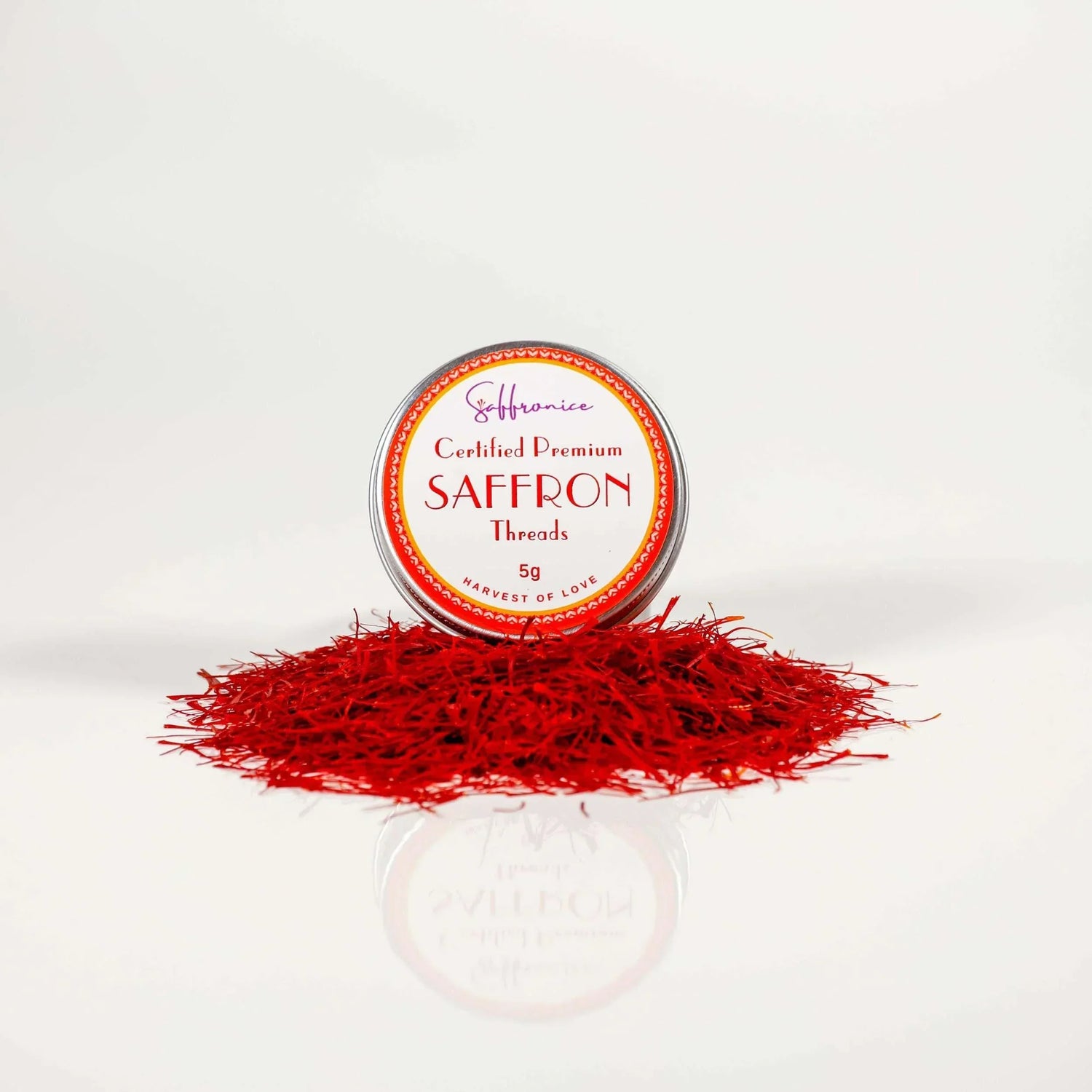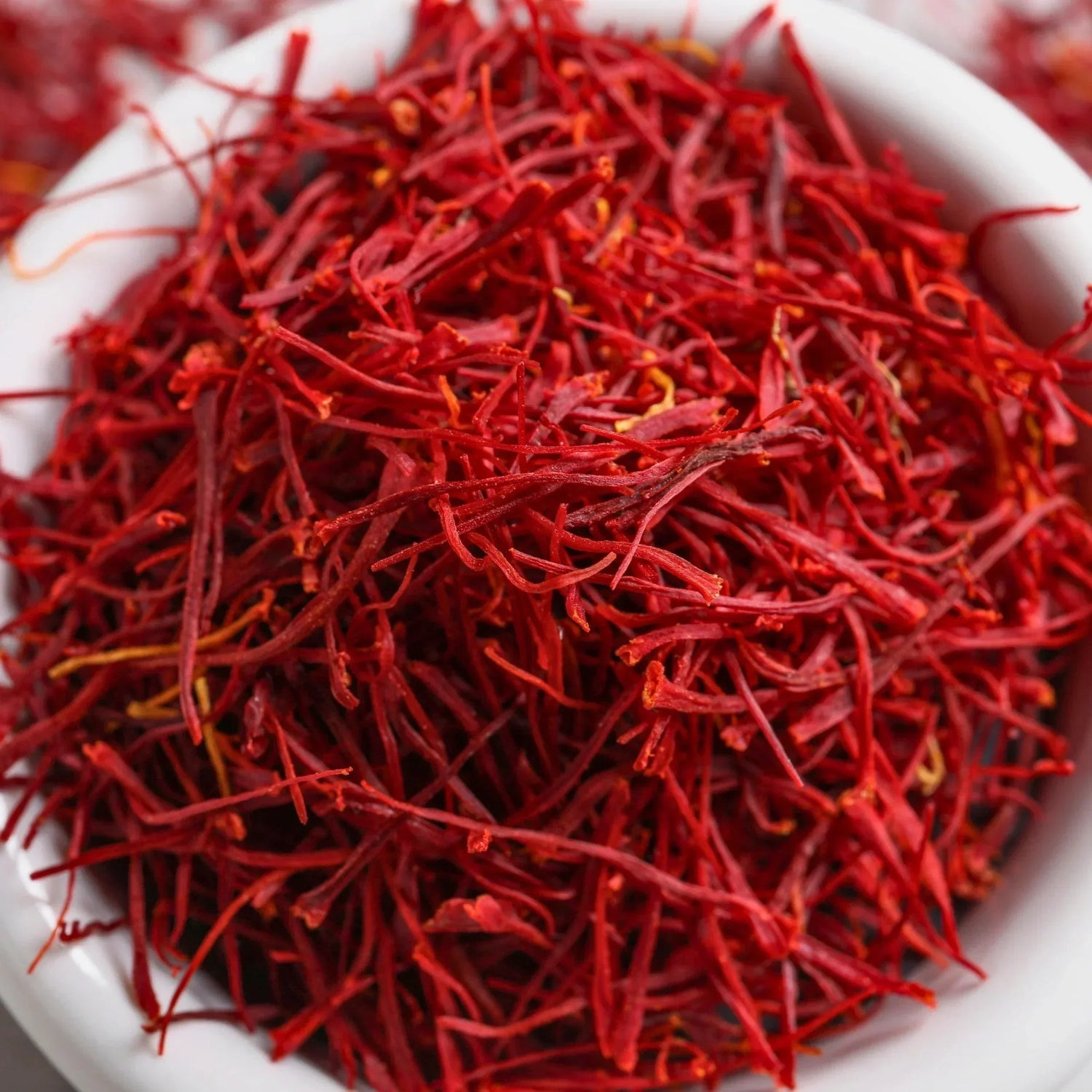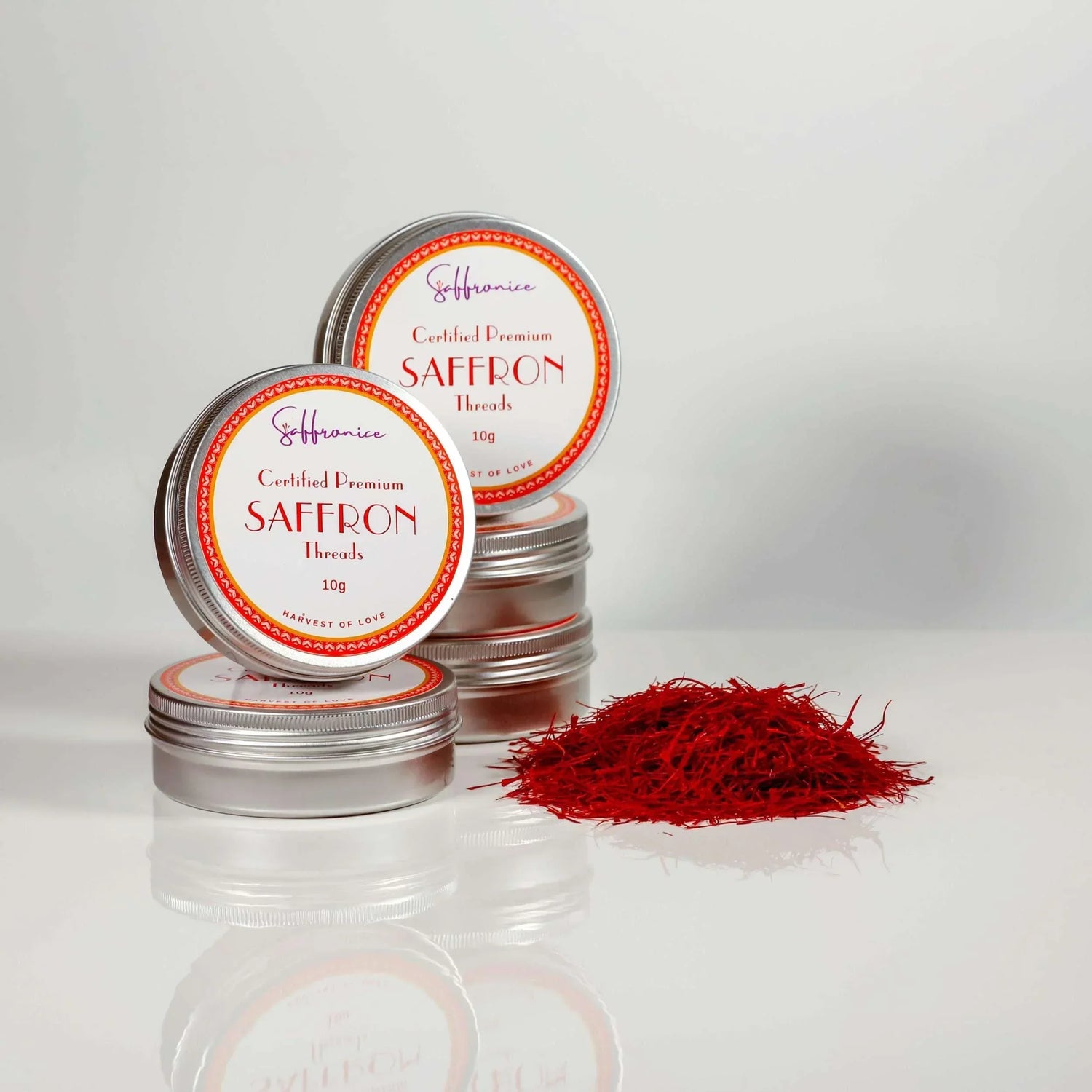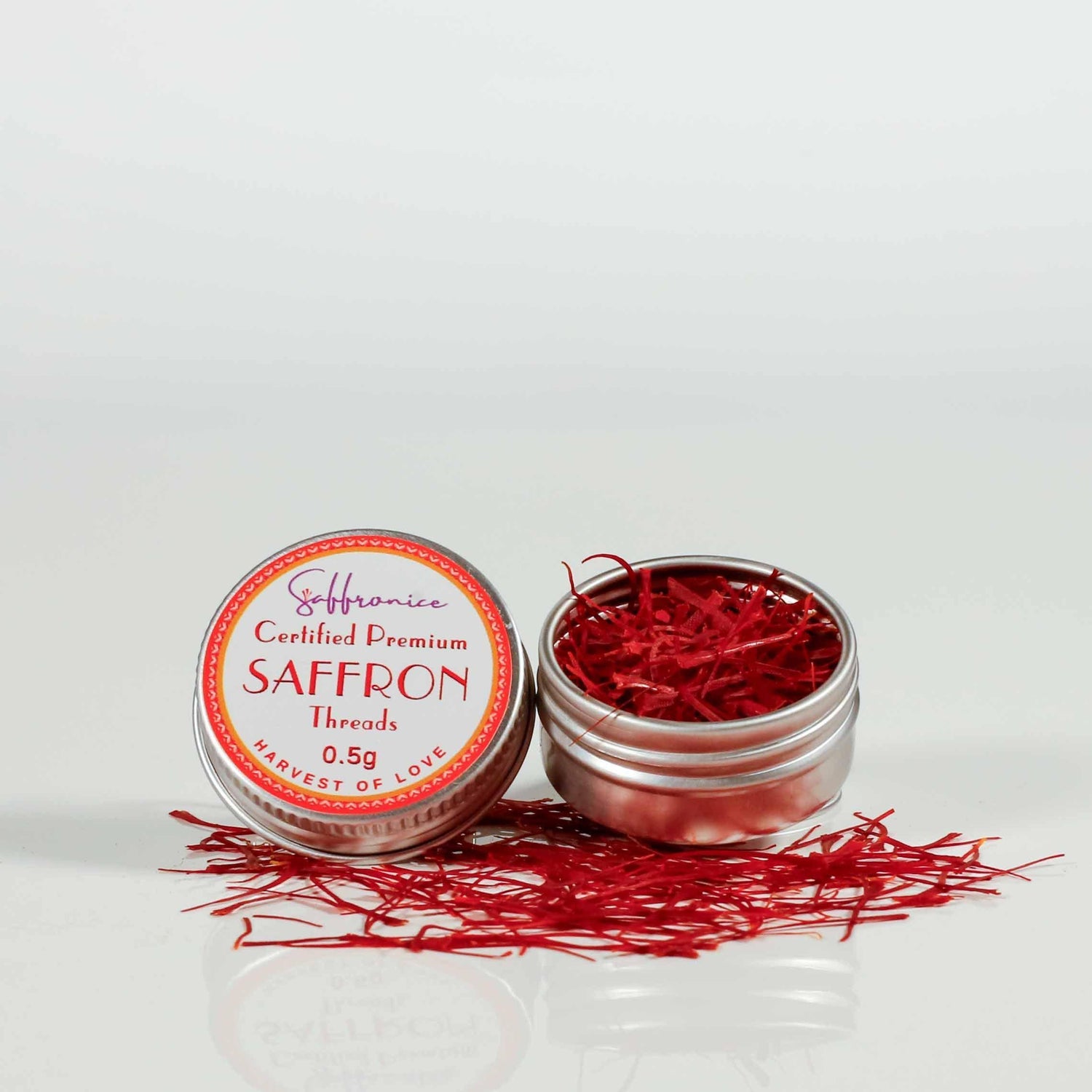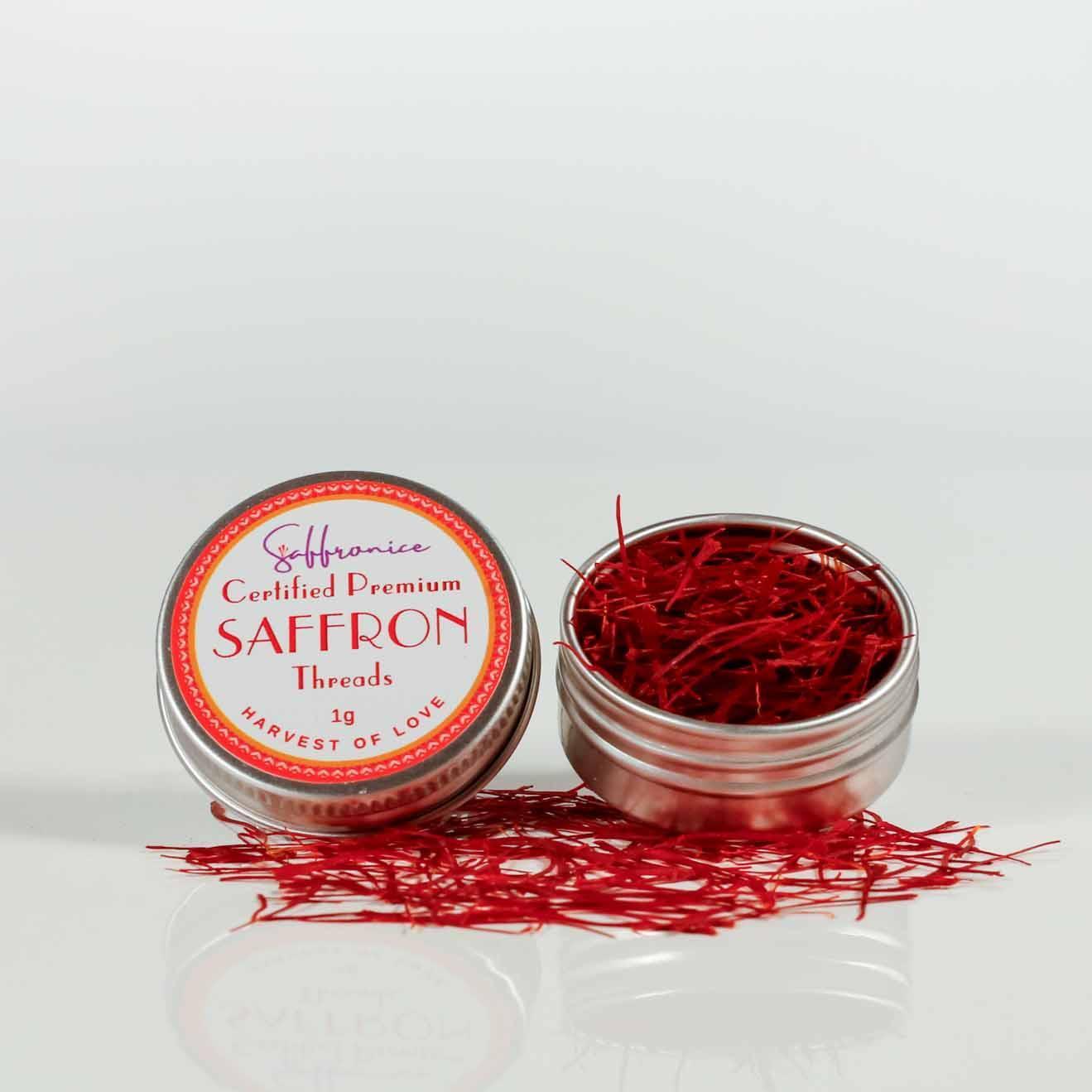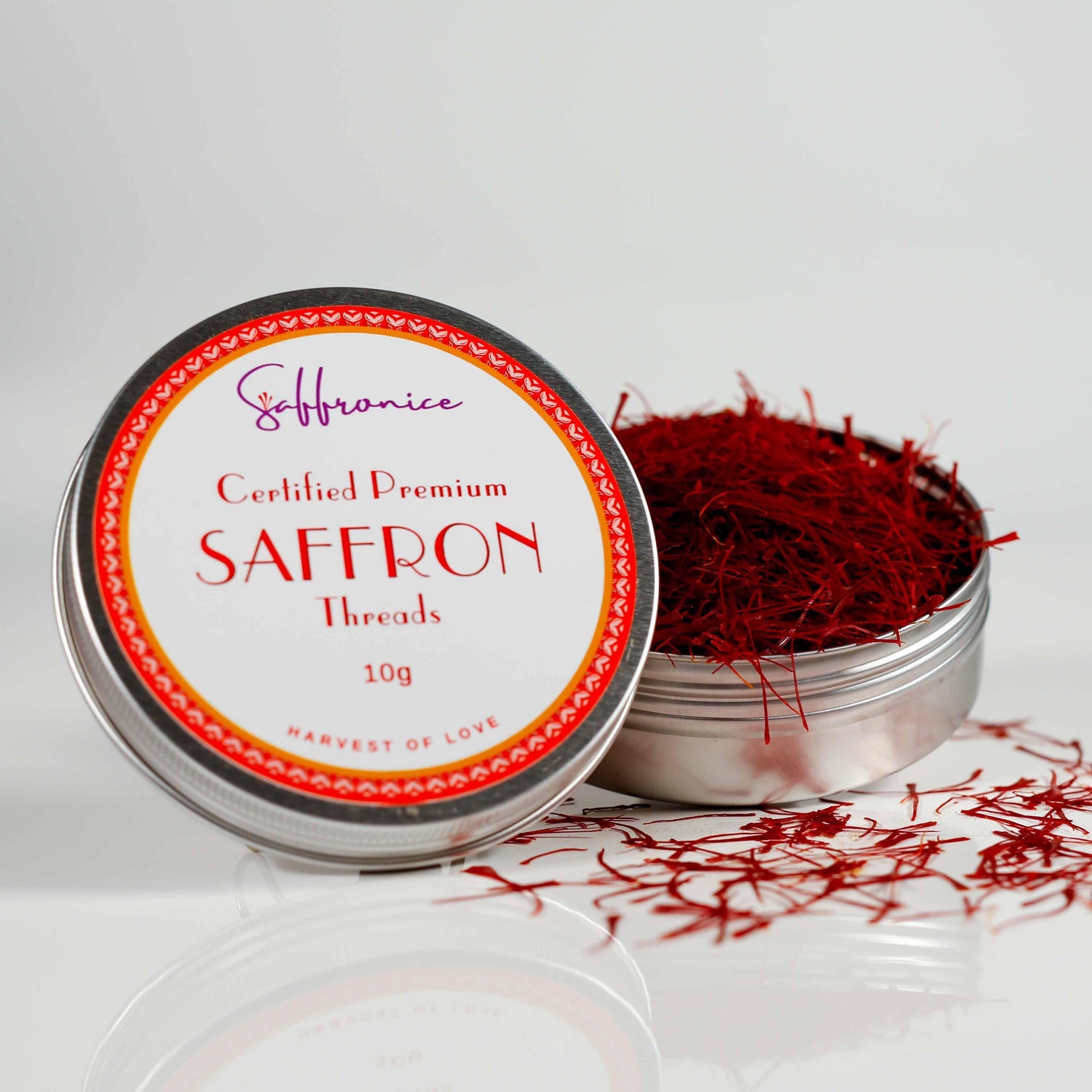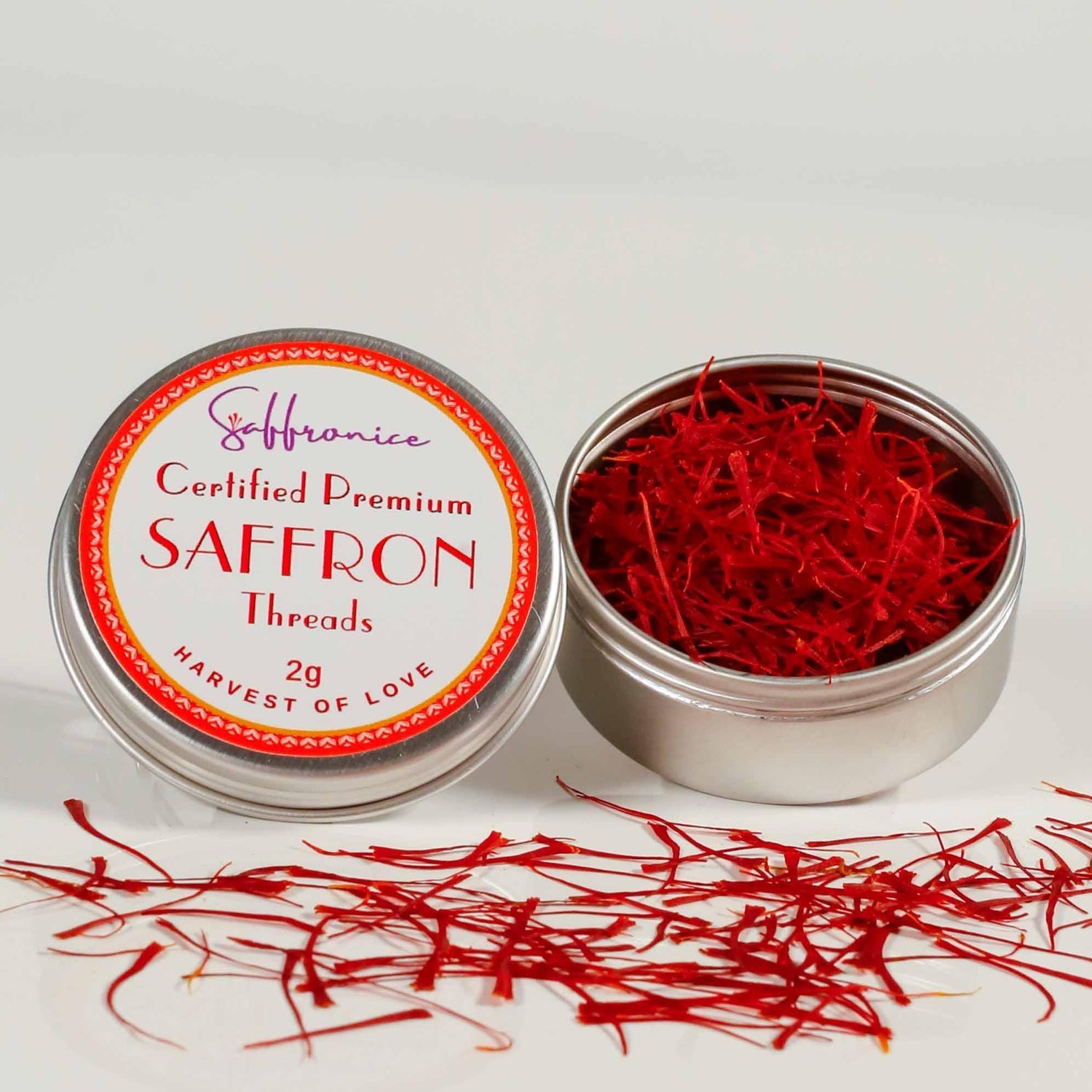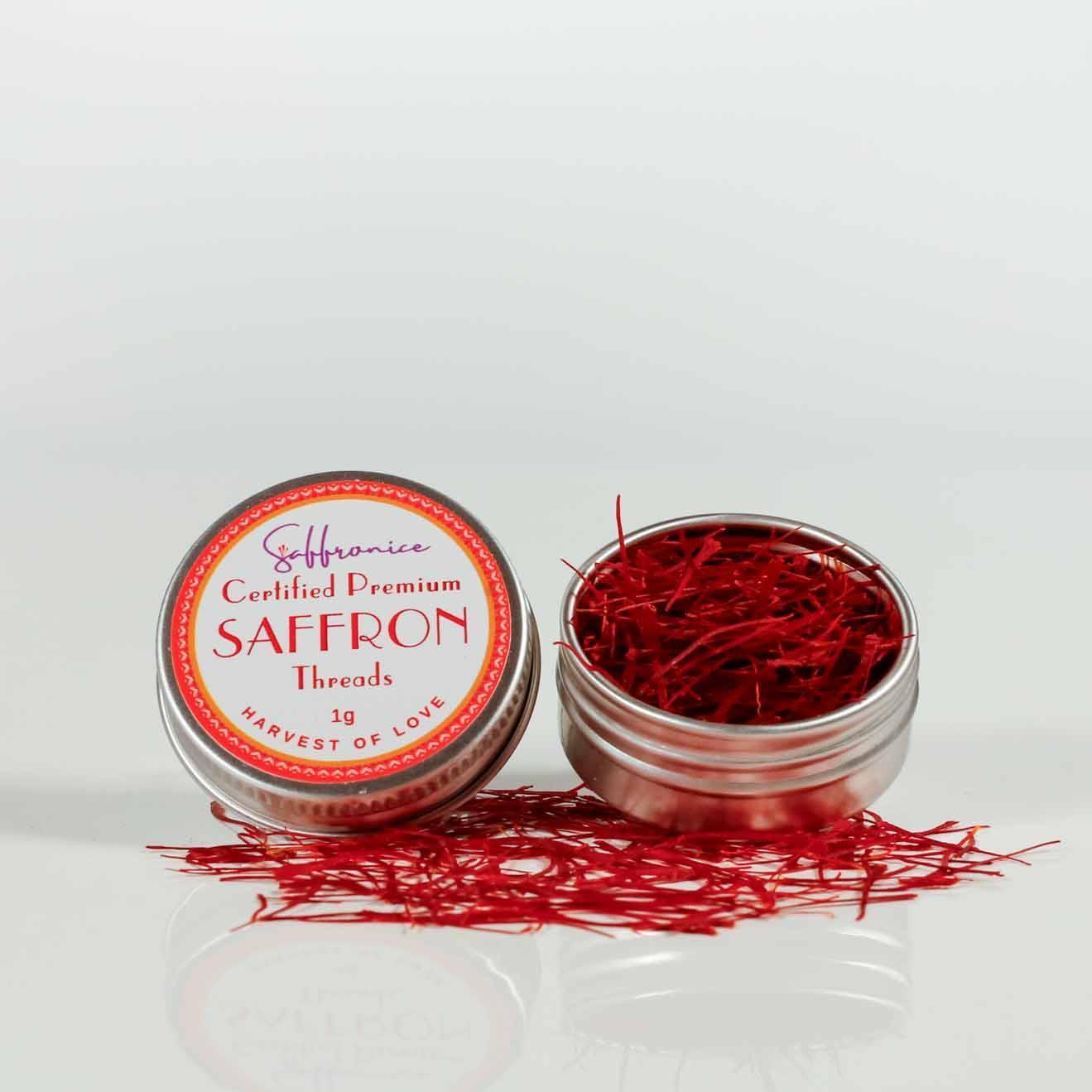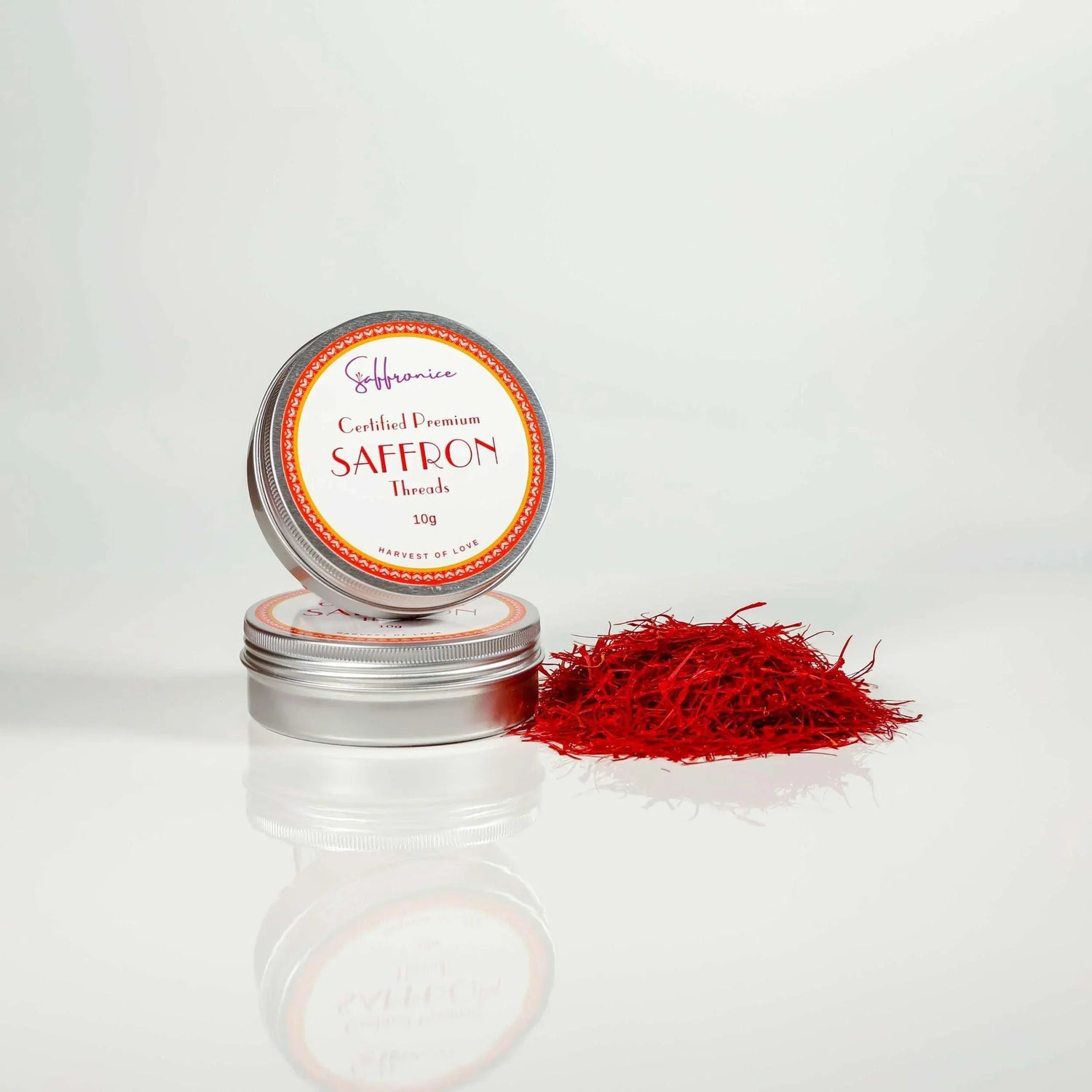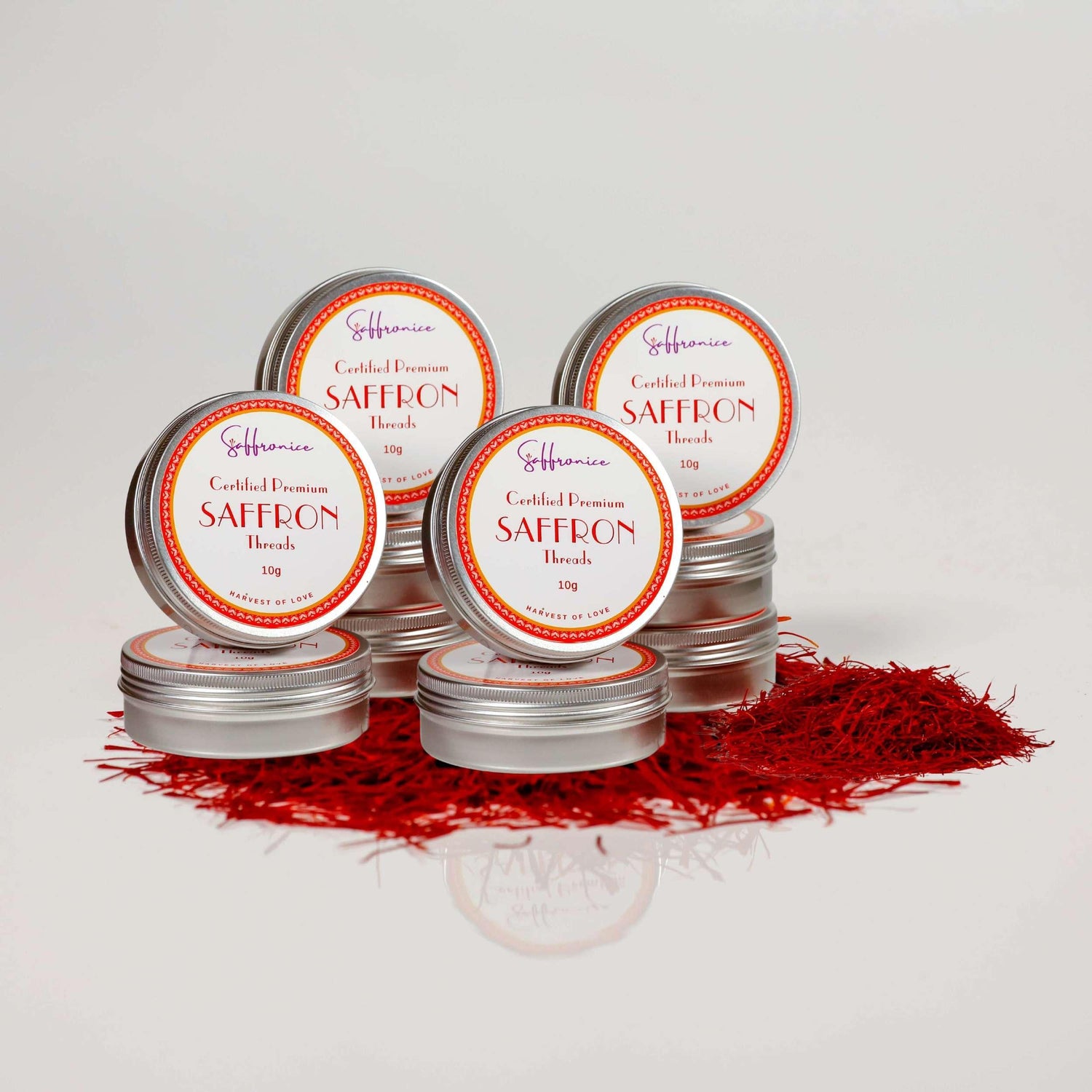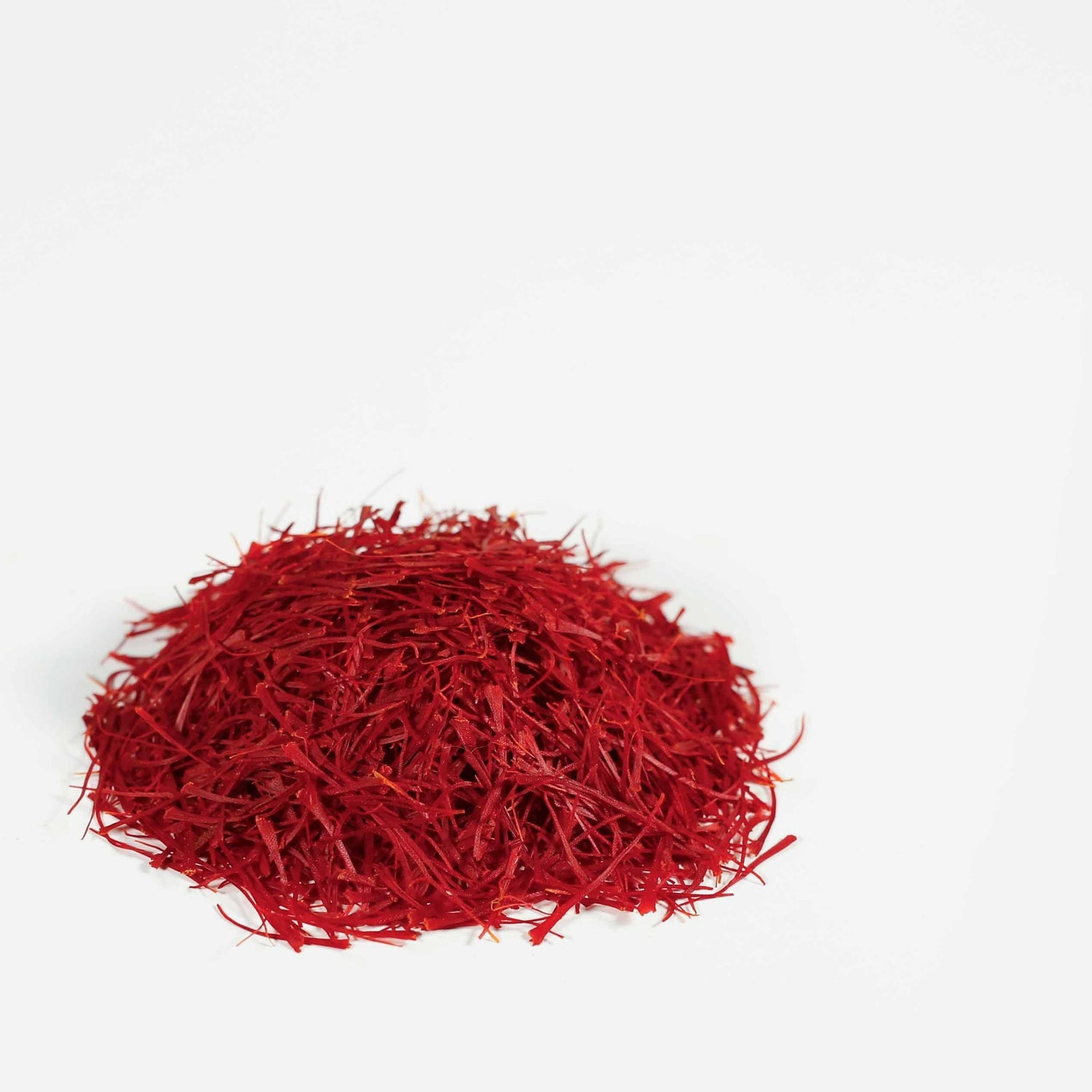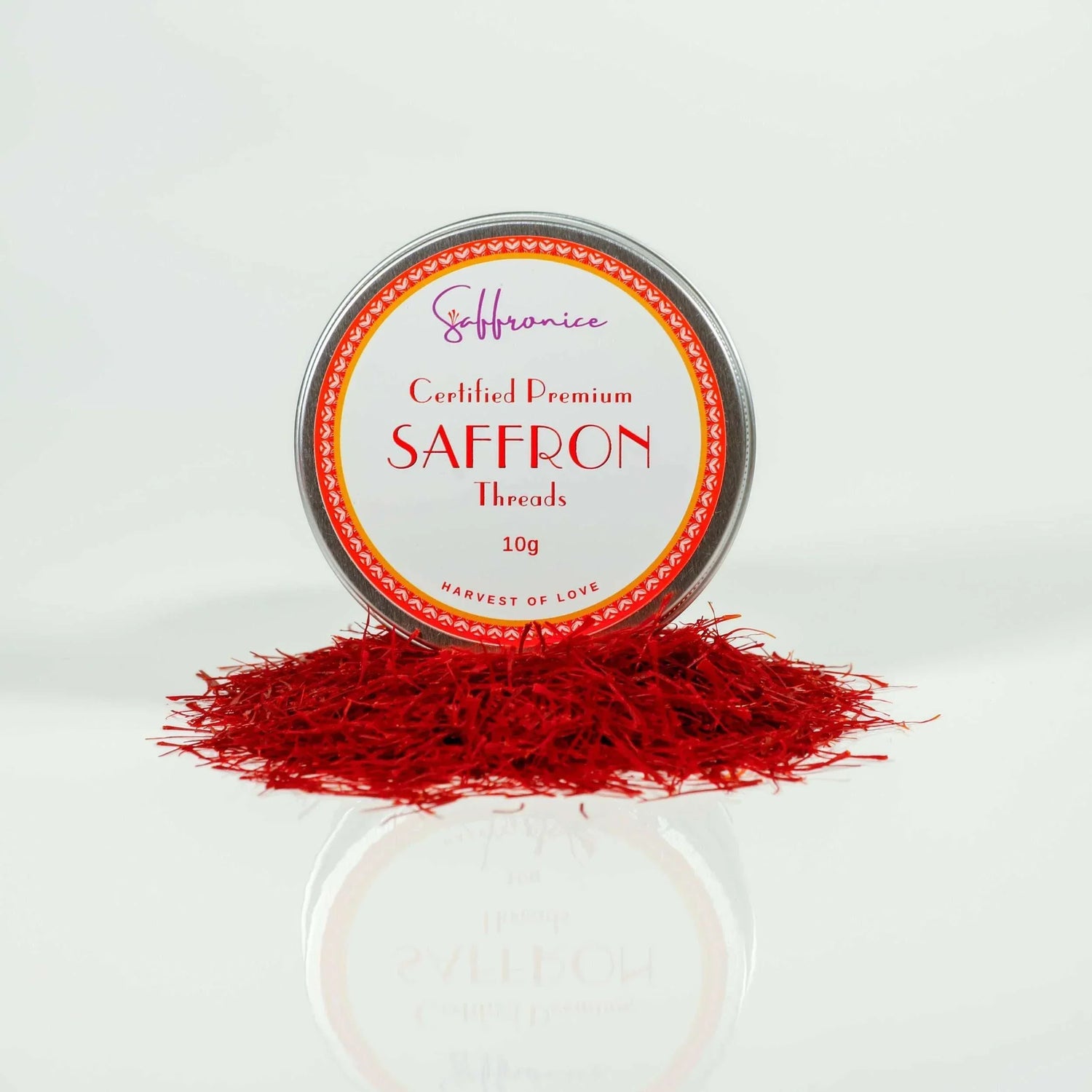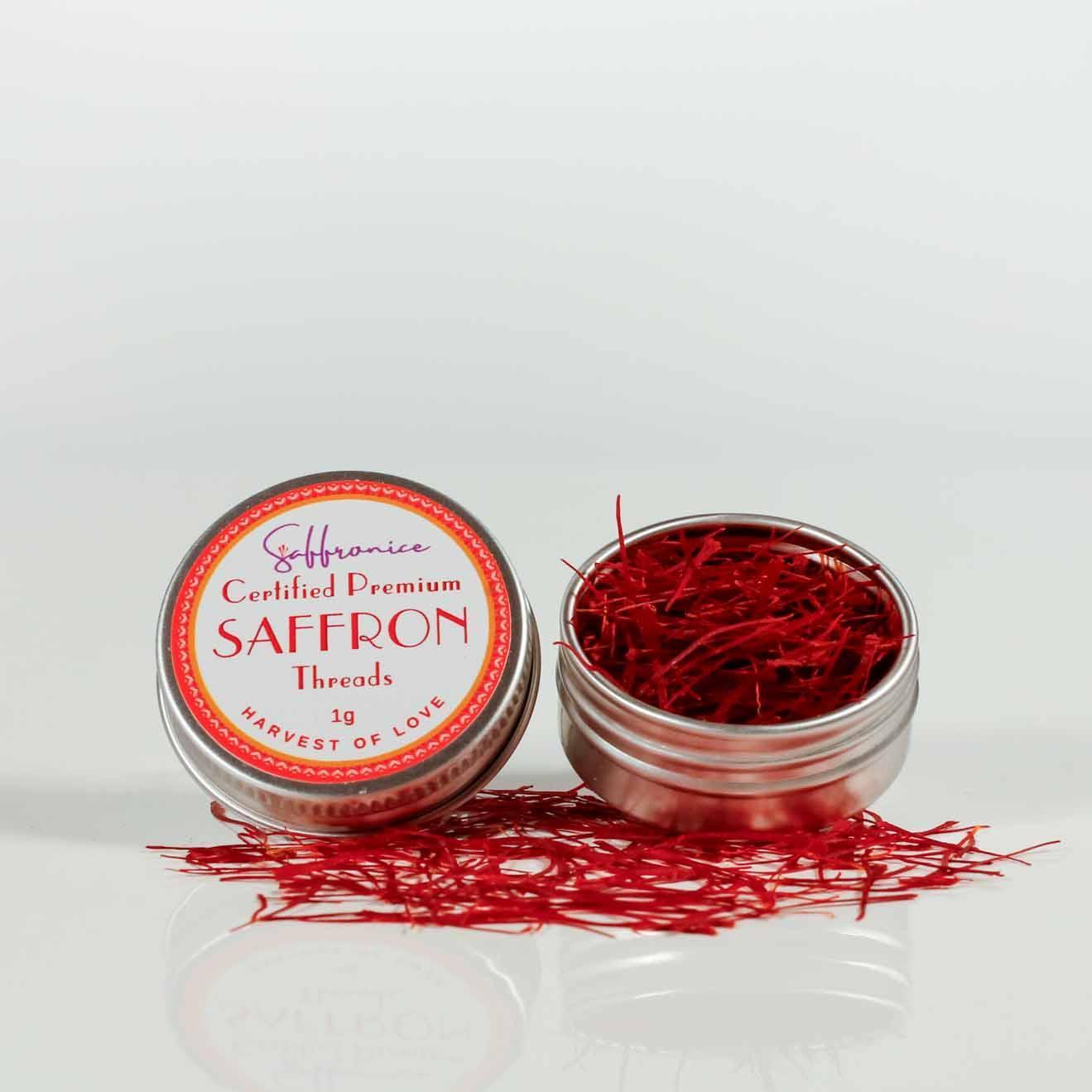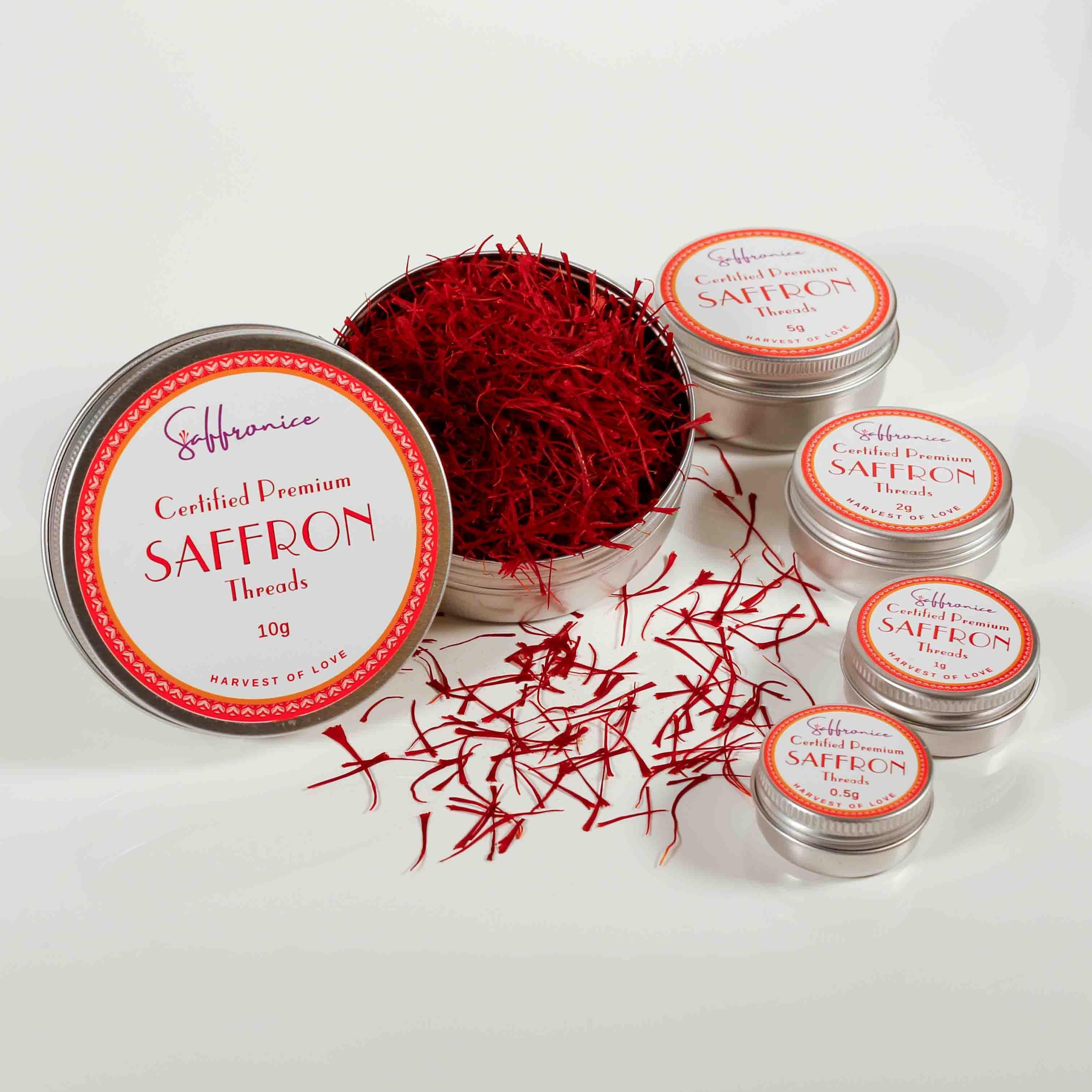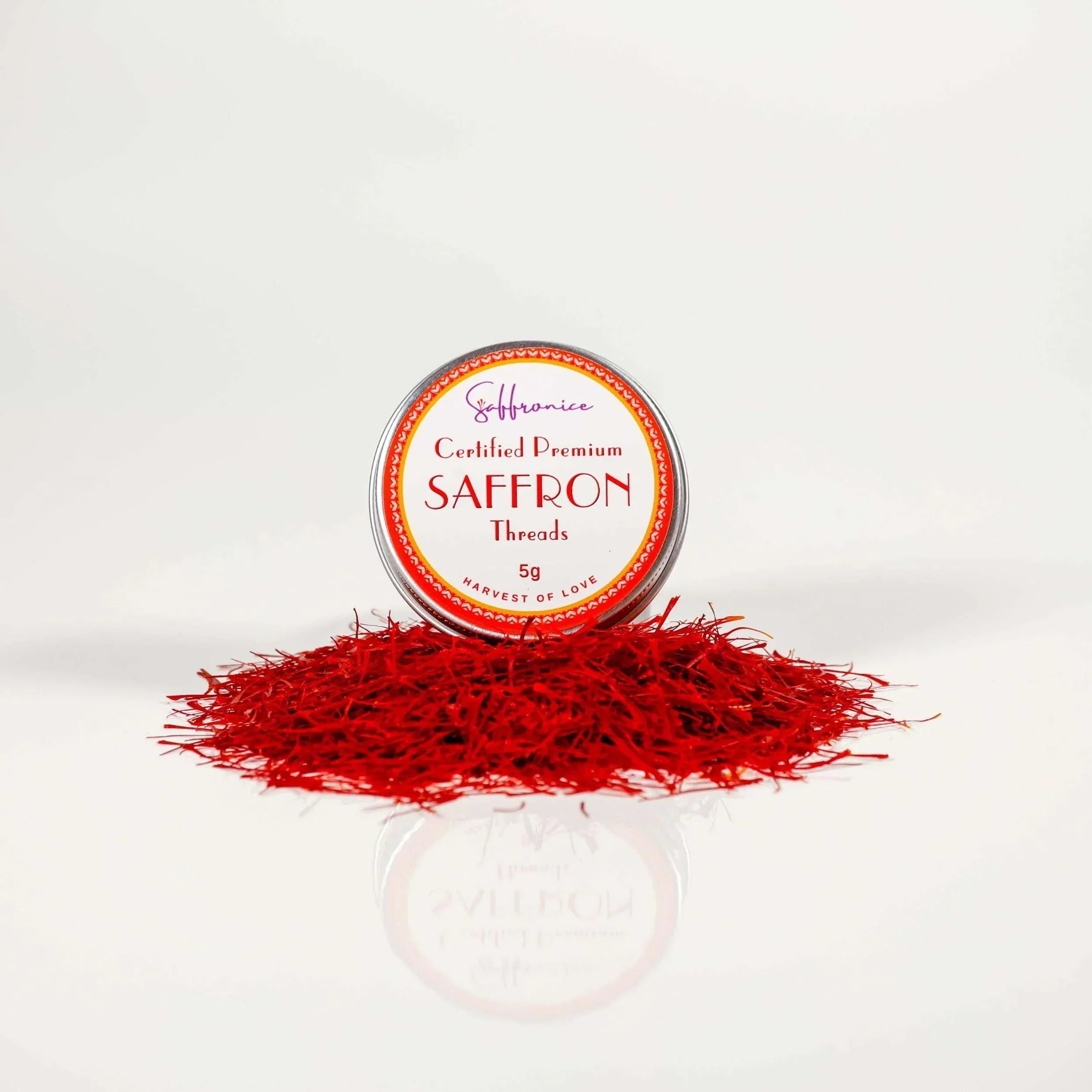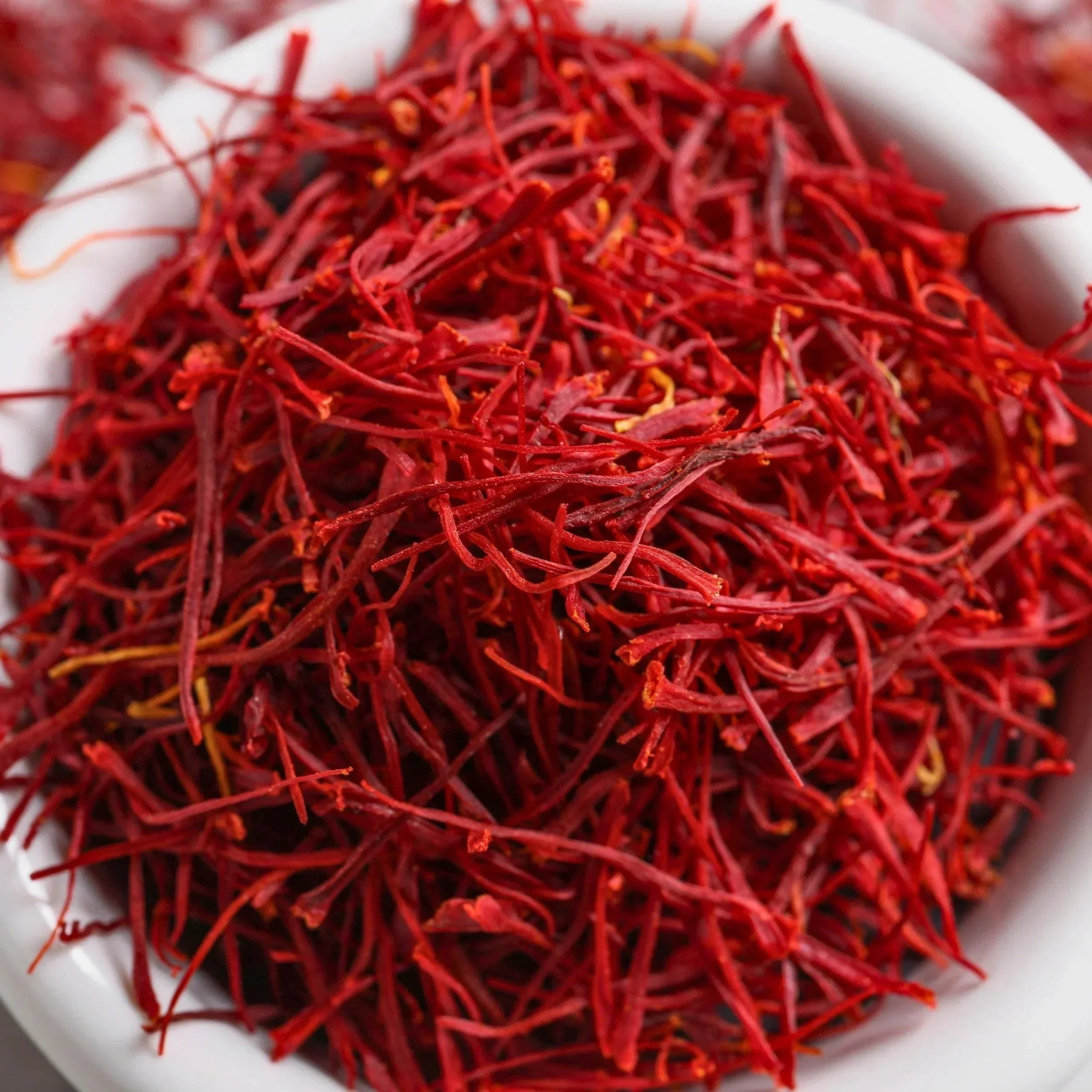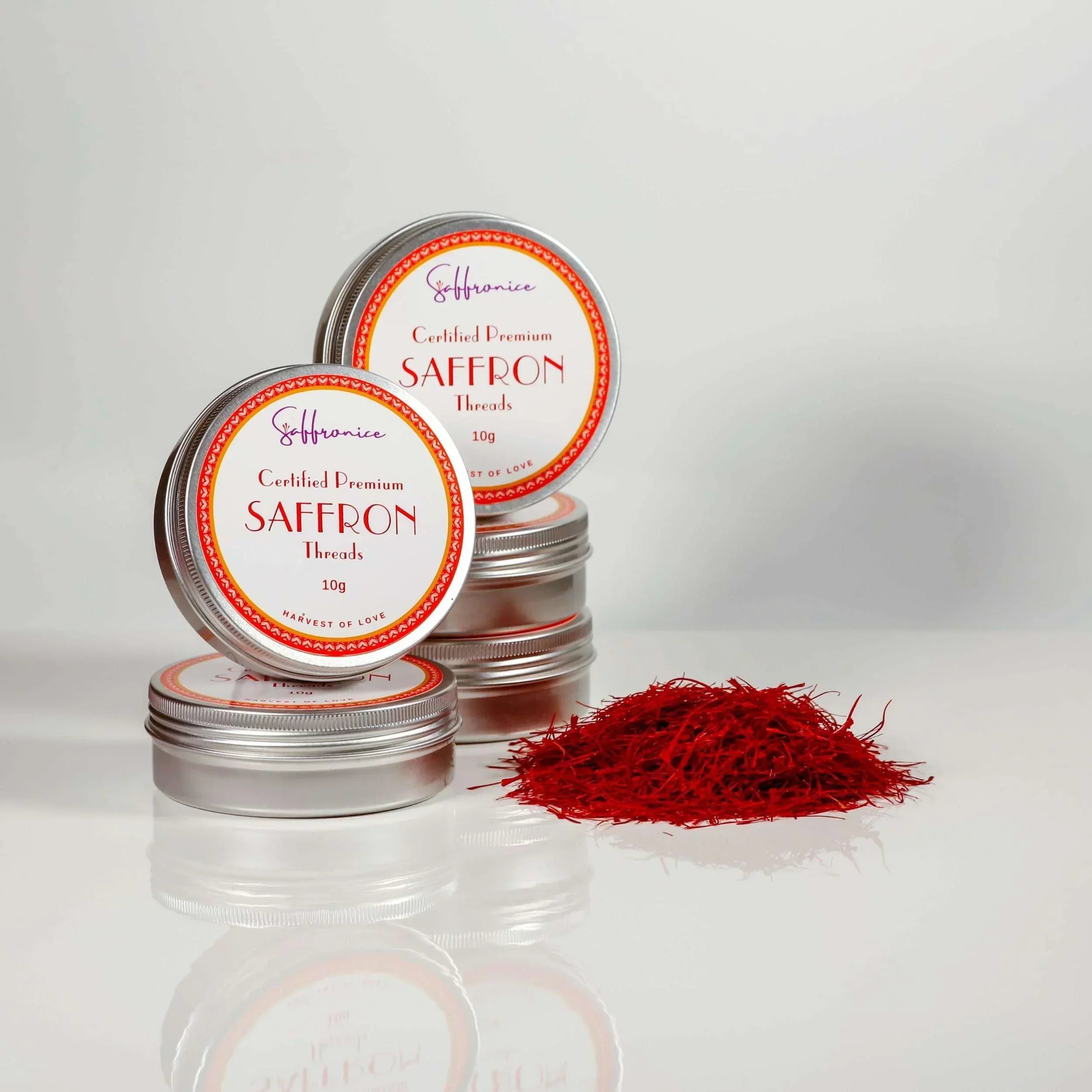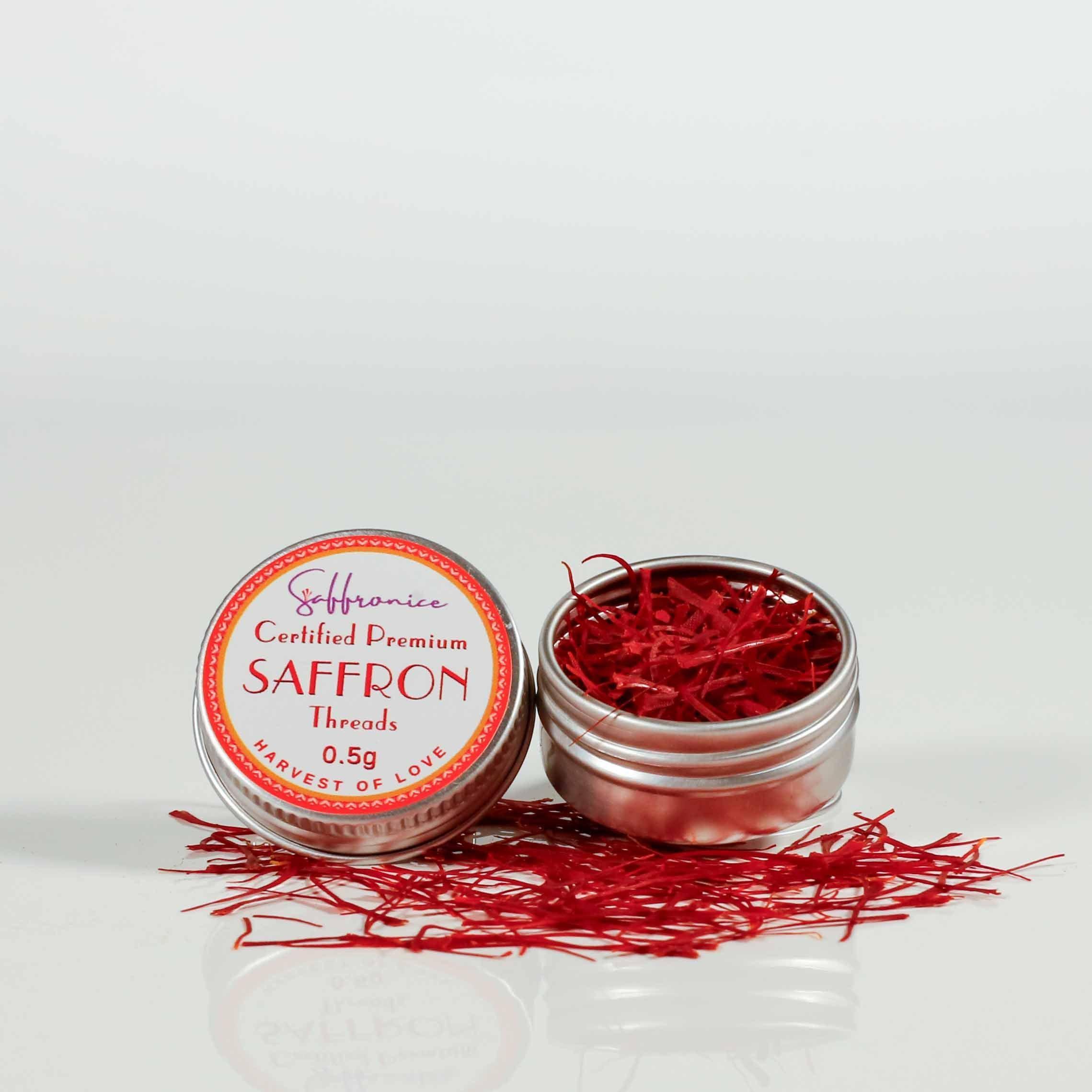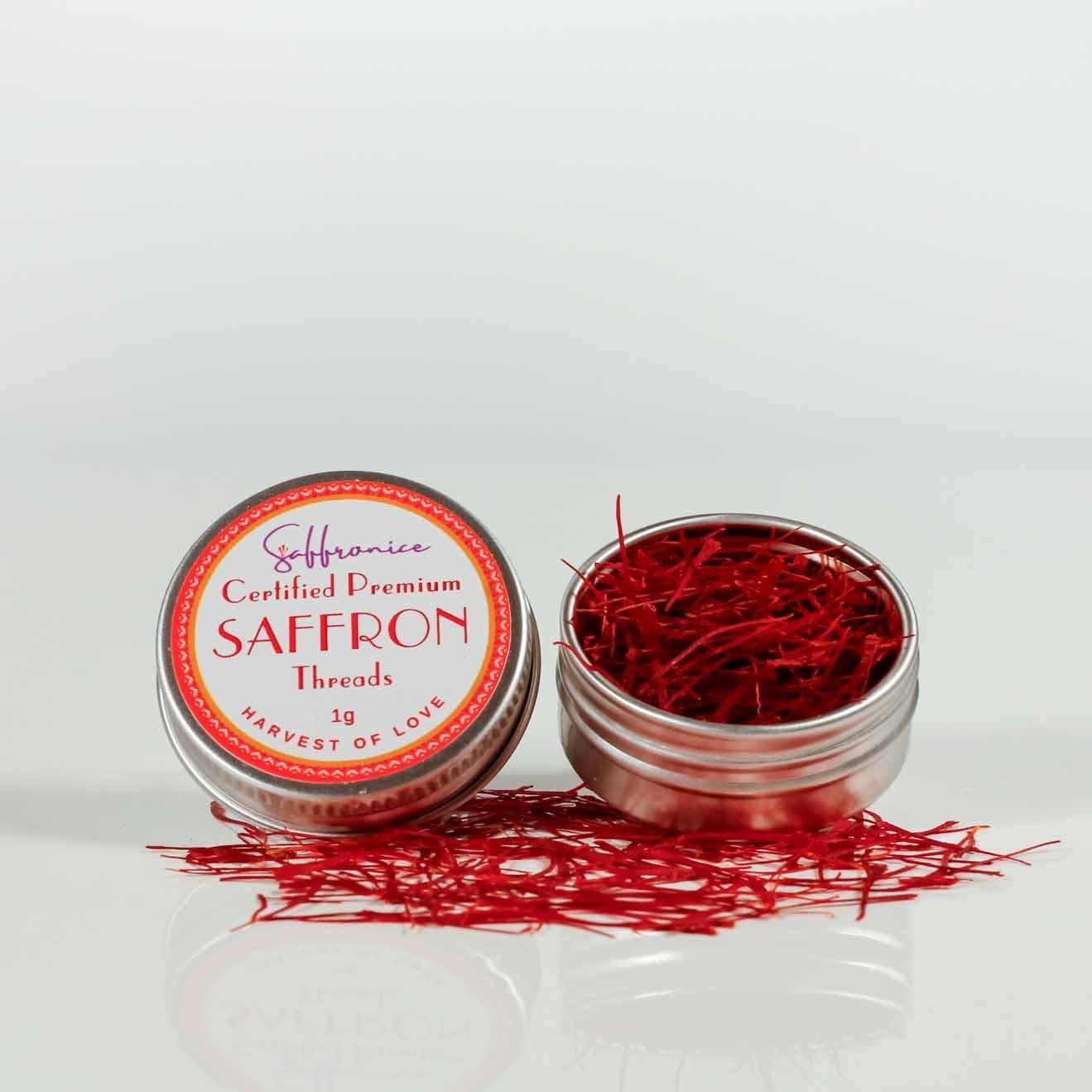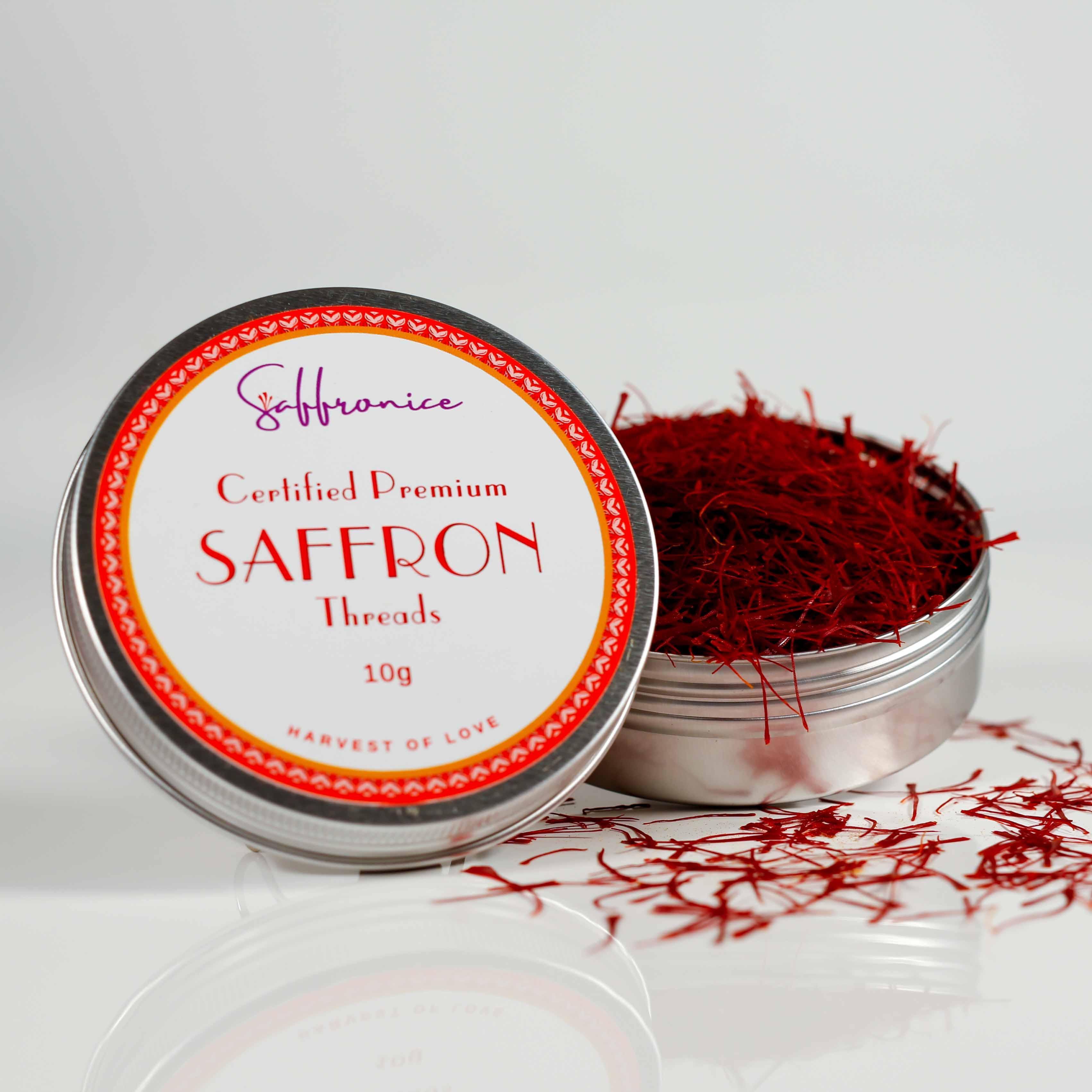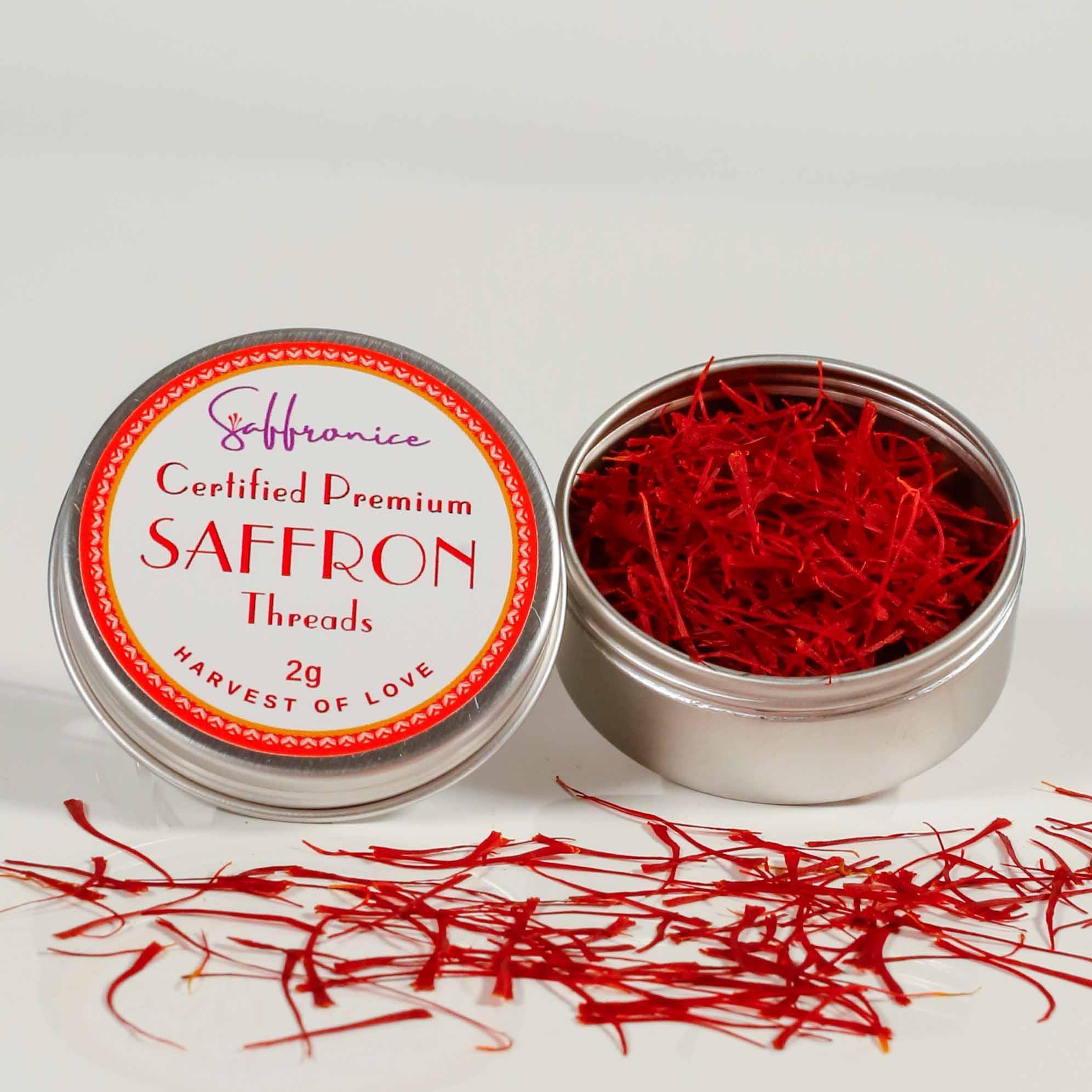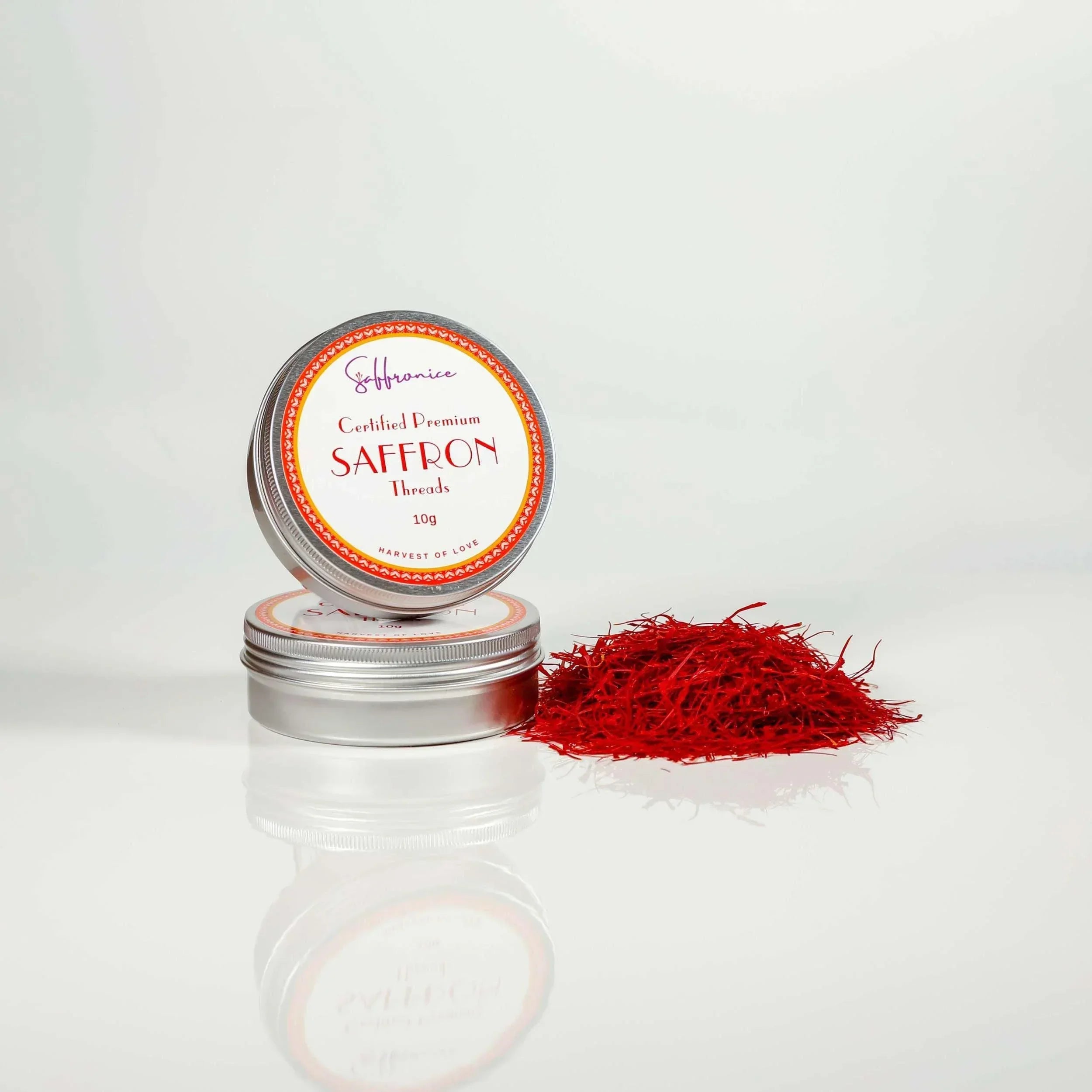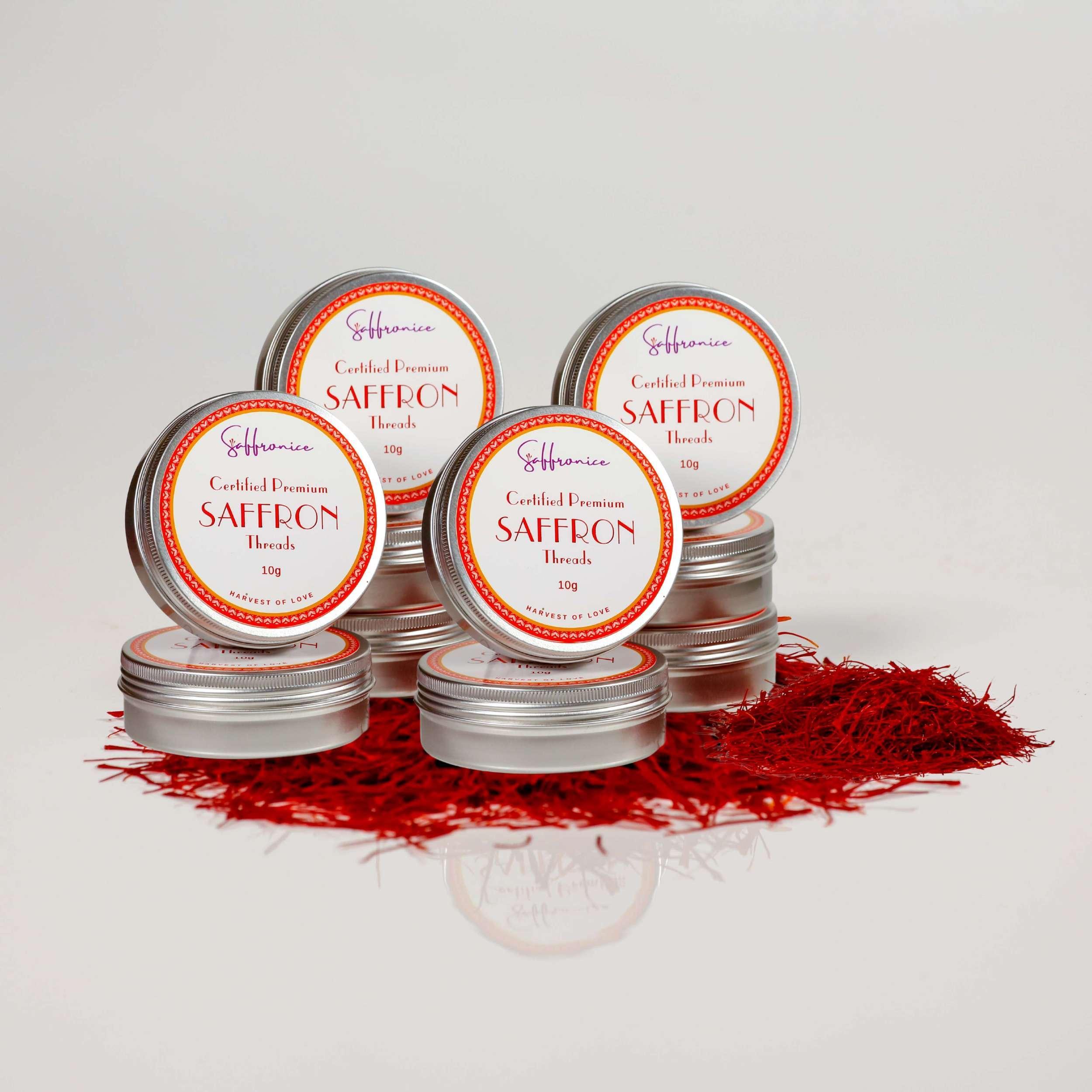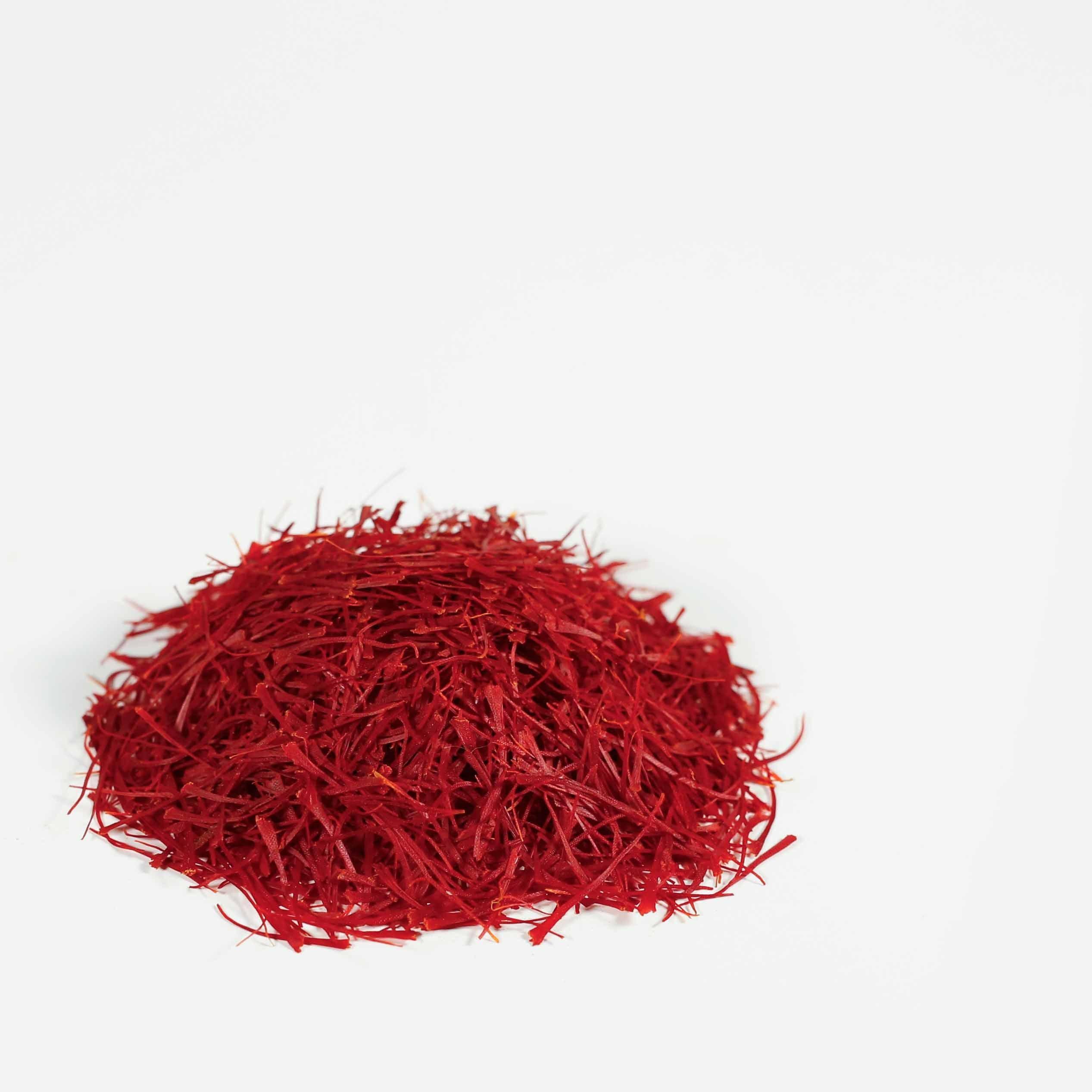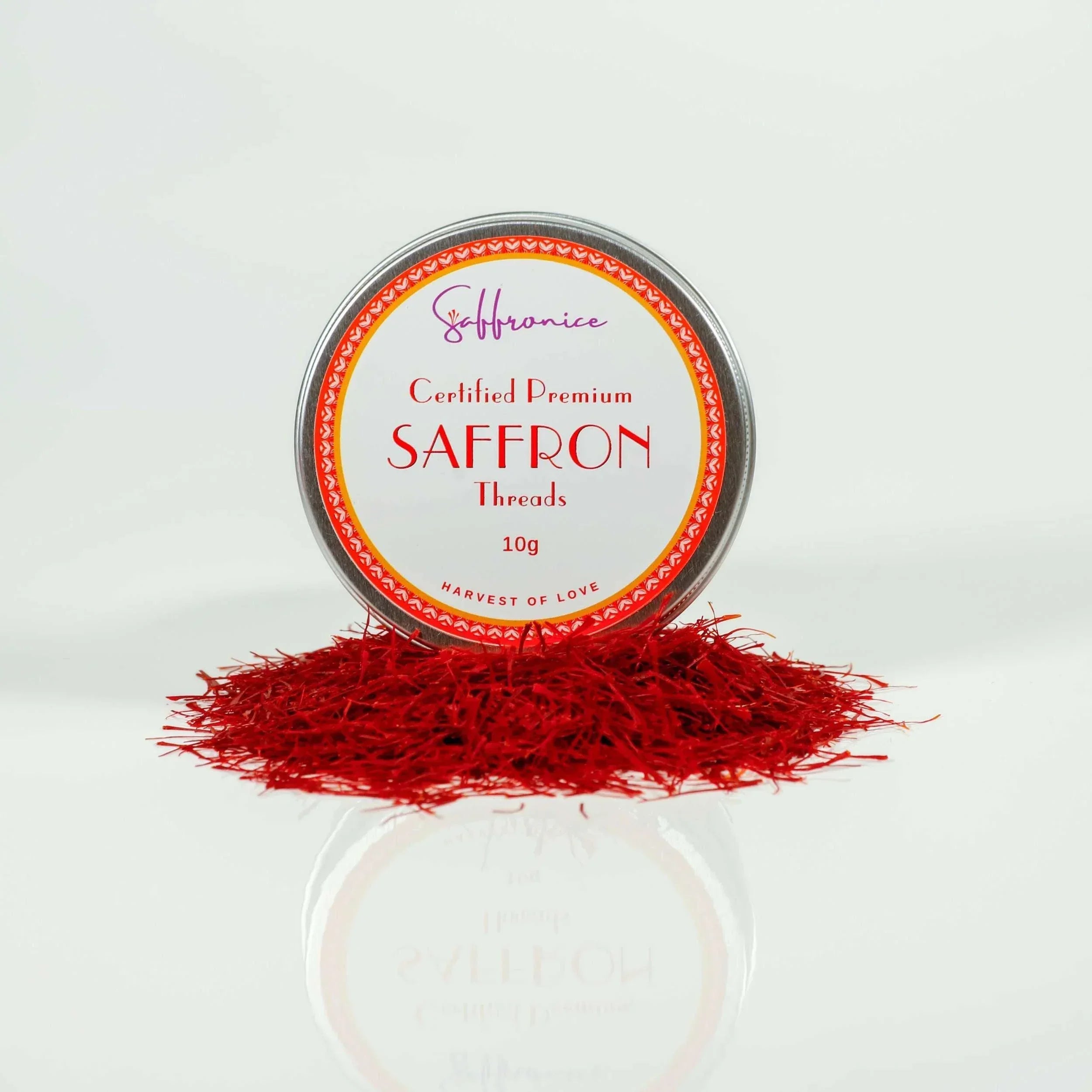Menopause, a natural transition in every woman's life, marks the end of the reproductive years, often bringing a host of symptoms like hot flashes, mood swings, and sleep disturbances. These symptoms can significantly impact daily life, affecting physical and emotional wellbeing. Amidst various remedies and treatments, saffron emerges as a traditional, natural ally, potentially easing these menopausal symptoms.
As a researcher specialising in menopause, I bring a blend of clinical expertise and scientific understanding to this topic. This article delves into how saffron, revered for centuries in traditional medicine, could offer relief and comfort to women navigating this phase of life. By combining historical wisdom with contemporary research, we explore Saffron's role in managing menopausal symptoms, offering a holistic approach to women's health during menopause.
Complete Guide to Menopause is a FREE e-book written by Matty Zar

Understanding Menopause
Menopause is not an event but a gradual process, typically occurring in women between the ages of 45 and 55. Three distinct stages mark it:
-
Perimenopause: This phase begins several years before menopause when the ovaries gradually produce less estrogen. It's during perimenopause that many women experience symptoms like irregular periods, hot flashes, and sleep problems.
-
Menopause: Officially diagnosed after 12 consecutive months without a menstrual period, this stage signifies the end of menstrual cycles.
-
Postmenopause: The years following menopause, during which symptoms can continue, but the risk of health issues linked to the loss of estrogen increases.
Common symptoms include hot flashes, mood swings, sleep disturbances, and hormonal changes, all of which can significantly affect a woman's quality of life. The physical effects and emotional stressors underscore the importance of effective management strategies during this transition.
Saffron – An Overview

Saffron, a spice derived from the Crocus sativus flower, has been a cornerstone in traditional medicine for millennia. Its history as a therapeutic agent stretches back to ancient civilisations, where it was used for its potent health benefits.
Central to Saffron's efficacy are three primary components:
-
Crocin: Known for its potent antioxidant properties, crocin is responsible for Saffron's distinctive red colour.
-
Safranal: Imparting the spice's unique aroma, safranal also boasts antidepressant and neuroprotective qualities.
-
Crocetin: This compound is believed to have anticancer, antidepressant, and anti-inflammatory effects.
Recent scientific research has begun to unveil the potential health benefits of these components, confirming some of the traditional uses of saffron. Studies have highlighted its role in improving mood disorders, enhancing cognitive function, and even offering protective effects against certain diseases.
This section sets the stage for a deeper exploration of how these properties make saffron a promising natural remedy for managing menopause symptoms.
Saffron and Menopause – The Connection

The relationship between saffron and menopause is rooted in the spice's unique biochemical composition. Saffron's active components, particularly crocin and safranal, have shown promise in addressing menopausal symptoms.
-
Impact on Hot Flashes: Hot flashes, a hallmark of menopause, can be distressing and disruptive. Research indicates that saffron may help reduce their frequency and severity. The spice's potential to modulate neurotransmitters could play a role in this symptom relief.
-
Improving Hot Flashes and Depression: Saffron has been found safe and effective in improving hot flashes and depressive symptoms in post-menopausal healthy women. It offers a non-hormonal and alternative herbal medicine option for women experiencing these symptoms.
Efficacy of Crocus sativus (saffron) in treatment of major depressive disorder associated with post-menopausal hot flashes: a double-blind, randomized, placebo-controlled trial - These studies collectively suggest that saffron can be a beneficial and low-risk option for women dealing with PMS, PMDD, and menopausal symptoms, offering an alternative to conventional treatments. However, it's important to note that while these results are promising, further research is required to fully understand the scope of Saffron's benefits and any potential long-term effects.
-
Mood Improvement: Mood swings and depressive symptoms are common during menopause. Studies have found that Saffron's antidepressant properties, likely due to its influence on serotonin and other neurotransmitters, can be beneficial in stabilising mood fluctuations.
- Hormonal Balancing Effects: While saffron does not directly mimic hormonal activity like some treatments, its overall impact on wellbeing, including mood and stress levels, can indirectly support hormonal balance during menopause.
Reducing PMS Symptoms: A study involving women aged 20-45 with regular menstrual cycles and experiencing PMS symptoms for at least 6 months found saffron to be effective in relieving these symptoms. The trial was a double-blind, randomised, and placebo-controlled study where women received either 30 mg of saffron daily or a placebo for two menstrual cycles. Significant differences were observed in the efficacy of saffron in cycles 3 and 4, particularly in the Total Premenstrual Daily Symptoms and Hamilton Depression Rating Scale.
These research findings suggest that saffron could be a valuable natural option for women seeking relief from the multifaceted challenges of menopause.
Saffron vs. Traditional Menopause Treatments

In the quest to find relief during menopause, many women weigh the options between natural remedies like saffron and conventional treatments such as hormone replacement therapy (HRT). Understanding the pros and cons of each is crucial for making informed decisions.
-
Hormone Replacement Therapy (HRT): HRT is often prescribed for menopausal symptoms, particularly for severe hot flashes. While effective, it carries risks and side effects, including an increased risk of breast cancer and heart disease.
-
Saffron as a Natural Alternative: Saffron offers a gentler, more holistic approach. Its use in alleviating mood swings and hot flashes has been supported by research without the significant side effects associated with HRT.
-
Pros and Cons: The advantage of saffron lies in its safety profile and the absence of severe side effects common in pharmaceuticals. However, it may not provide the same level of symptom control as HRT in severe cases. It's also important to note that the efficacy of natural remedies can vary between individuals.
-
Safety and Side Effects: While saffron is generally safe, high doses can be toxic. It's crucial for women considering saffron for menopause management to consult with healthcare professionals, ensuring proper dosage and monitoring for any adverse reactions.
Saffron Supplements: Research indicated that 60% of women taking saffron supplements reported a 50% or higher reduction in 17 PMS-related symptoms. Saffron was found more effective than a placebo in treating symptoms like irritability, headaches, cravings, and pain, attributed to its influence on serotonin reuptake in the synapses.
By comparing these options, women can better understand Saffron's potential benefits and limitations in the context of traditional menopause treatments.
Incorporating Saffron into Daily Life

Integrating saffron into daily life as a part of menopause management requires understanding its usage, focusing on quality, and considering complementary lifestyle changes.
-
Usage and Dosage: The recommended dosage of saffron varies, but studies often use 30 mg per day, split into two doses. It's available in various forms, including threads, powder, Nano Extract and supplements. Consulting with a healthcare provider for personalised advice is vital.
-
Quality and Purity: The effectiveness of saffron largely depends on its quality. High-grade saffron is more potent and beneficial. When choosing saffron products, look for certifications that guarantee purity and avoid adulterated or low-quality variants.
-
Complementary Lifestyle Changes: Alongside saffron, incorporating lifestyle modifications can enhance overall wellbeing during menopause. This includes a balanced diet, regular exercise, adequate sleep, and stress reduction techniques.
Effectiveness in PMDD Treatment: A randomized controlled trial with 120 females diagnosed with Premenstrual Dysphoric Disorder (PMDD) compared the efficacy of saffron, fluoxetine, and placebo. The study showed significant improvements in all treatment approaches, with saffron displaying remarkable superiority over placebo in terms of severity of problems. Saffron was found to be an efficacious herbal agent for the treatment of PMDD with minimal adverse effects.
Saffron for the Management of Premenstrual Dysphoric Disorder: A Randomized Controlled Trial
By combining saffron with these healthy practices, women can create a comprehensive approach to managing menopause symptoms, leading to a more comfortable and balanced transition.
Real-life Case Studies

Real-life case studies and testimonials offer valuable insights into the potential benefits of saffron during menopause. These narratives highlight women's experiences who have incorporated saffron into their menopause management regimen.
-
Anecdotal Evidence: Case studies from clinical practice demonstrate how various women grappling with symptoms like hot flashes and mood swings found relief after introducing saffron into their daily routine. These accounts provide a more personal and relatable perspective on the efficacy of saffron.
-
Testimonials: Firsthand testimonials from women who have benefitted from saffron can be powerful. These stories often reflect improvements in overall quality of life, mood stability, and reduced intensity and frequency of hot flashes.
Alleviating Menopausal Symptoms: A study on the effects of a saffron extract (affron®) on menopausal symptoms in perimenopausal women indicated positive outcomes. In this 12-week, double-blind, randomized controlled trial involving 86 perimenopausal women, those receiving 14 mg of saffron extract twice daily experienced a reduction in menopausal complaints compared to those receiving a placebo.
The Effects of a Saffron Extract (affron®) on Menopausal Symptoms in Women during Perimenopause: A Randomised, Double-Blind, Placebo-Controlled Study
These real-world experiences, while not replacing clinical evidence, offer a complementary view, showcasing how saffron can be a valuable part of a holistic approach to managing menopause symptoms.
Precautions and Considerations

While saffron presents a promising natural remedy for menopause symptoms, it's essential to approach its use with caution and awareness.
-
Potential Side Effects: Saffron is generally safe when consumed in small amounts. However, it can cause side effects like dry mouth, dizziness, and sedation in medicinal doses. High doses can be toxic, so adhering to recommended dosages is crucial.
-
Contraindications: Saffron may interact with certain medications and is not recommended for pregnant women. Women with specific health conditions should consult their healthcare provider before using saffron.
-
Importance of Medical Consultation: Always seek advice from a healthcare professional before starting any new treatment, including natural remedies like saffron. They can provide guidance tailored to individual health needs and circumstances.
-
Addressing Misconceptions: Common misconceptions about natural remedies, such as the belief that they are universally safe or effective for everyone, must be addressed. While saffron has benefits, it's not a one-size-fits-all solution and should be part of a broader health management plan.
FAQs: Menopause and Saffron

Q1: What is Menopause?
Menopause is the cessation of menstrual cycles, typically occurring when a woman is in her 40s or 50s. It is officially diagnosed after a woman goes 12 months without menstruating.
Q2: What are the Common Symptoms of Menopause?
Common symptoms include hot flashes, night sweats, mood swings, sleep problems, weight gain, and thinning hair.
Q3: How Can Saffron Help with Menopause Symptoms?
Saffron might help alleviate mood swings and depression during menopause due to its potential antidepressant properties.
Q4: Is Saffron Effective in Reducing Hot Flashes?
Some studies indicate that saffron may help reduce hot flashes, but further research is needed for conclusive evidence.
Q5: Can Saffron Improve Sexual Function During Menopause?
Early research suggests that saffron could improve sexual function in postmenopausal women by enhancing blood flow and libido.
Q6: What is the Recommended Dosage of Saffron for Menopause Symptoms?
The recommended daily dosage often ranges from 30 to 300 mg. However, it's crucial to consult a healthcare provider before starting any new supplement.
Q7: Are There Any Side Effects of Taking Saffron?
Saffron is generally safe in culinary amounts. High doses or prolonged use can cause side effects like dry mouth, anxiety, and nausea.
Q8: How Long Does it Take for Saffron to Alleviate Menopause Symptoms?
The time varies among individuals. Some may notice improvements within weeks, while others may require a longer duration.
Q9: Can Saffron Interact with Menopause Medications?
Saffron might interact with certain medications, including antidepressants and blood thinners. Consulting a healthcare provider is essential before combining it with other treatments.
Q10: Is Saffron a Replacement for Hormone Replacement Therapy (HRT)?
Saffron is not a replacement for HRT. While it may help with some symptoms, it doesn't provide the hormones that the body ceases to produce during menopause.
Disclaimer: While natural remedies like saffron can be beneficial, they should be used with professional medical advice and treatment. Always consult a healthcare professional before starting any new therapy for menopause symptoms.
Click Here to Download your Free e-book
Learn more about Saffron’s Health Benefits and Risks


